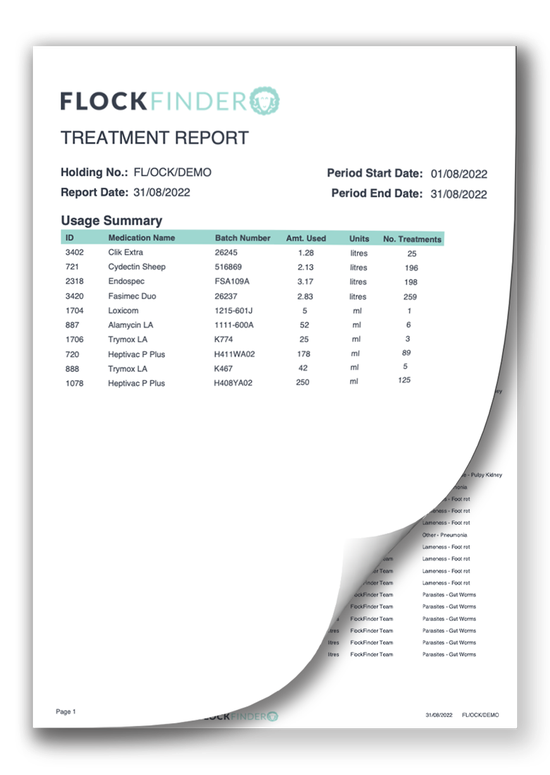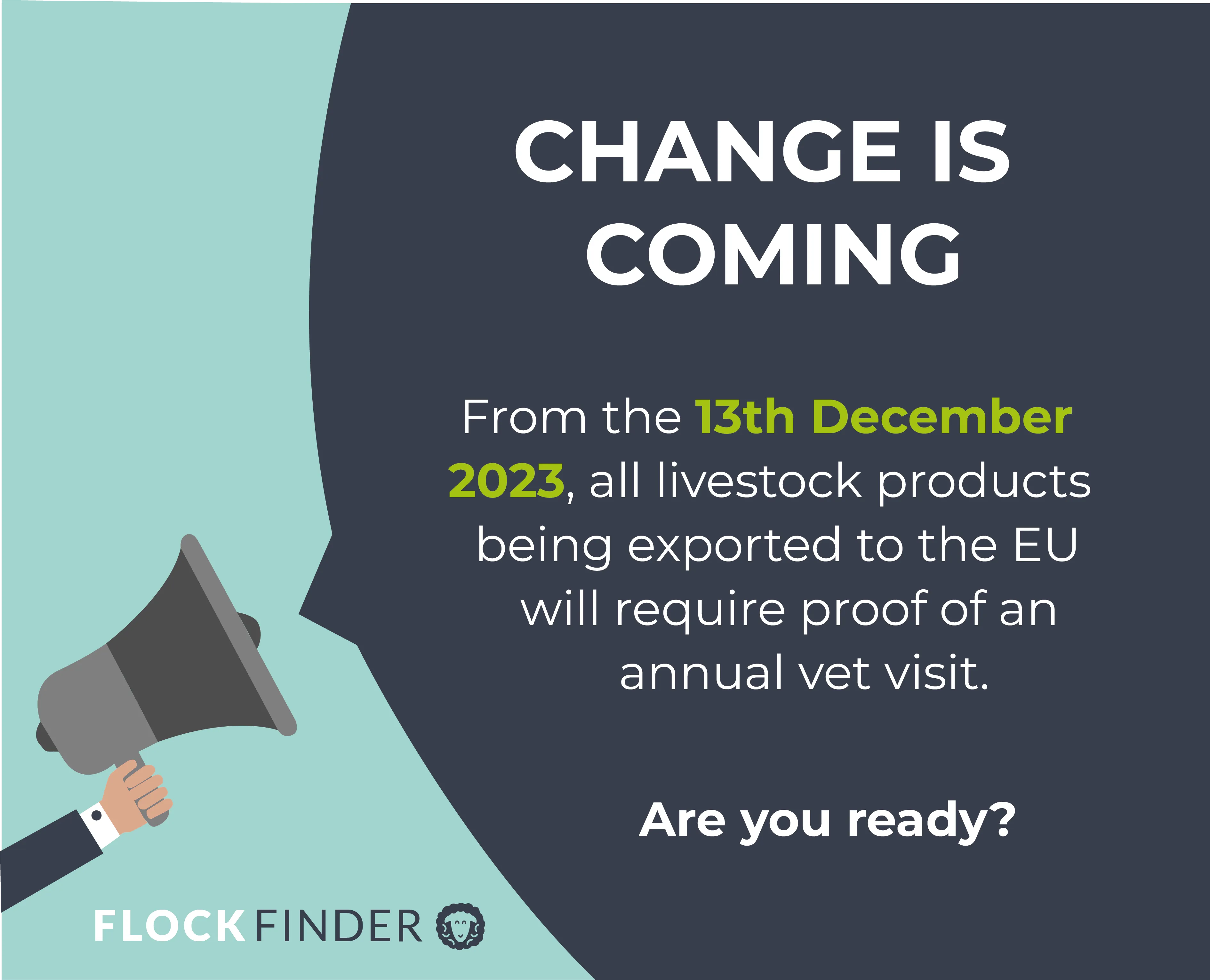What's changing?
From 13 December 2023, farmers will need to provide evidence of annual health visits if their livestock, or livestock derived produce, are to enter the food chain and may be exported to the EU or northern Ireland.
This can be evidenced in two ways:
- by providing a Vet Attestation Number (VAN), or
- a qualifying farm assurance membership number
This is being implemented by Article 8(e) of the Delegated Regulation 2020/692.
“[Farms] must receive regular animal health visits from a veterinarian for the purpose of the detection of, and information on, signs indicative of the occurrence of diseases"
See the announcement from DEFRA here (opens new tab).
Do I HAVE to get a Vet Attestation Number?
No, it is optional and your choice to apply for a VAN.
However, livestock markets will be obliged to make buyers aware if the livestock will not qualify for export. It is highly likely that this will create a price differential between VAN and non-VAN livestock, with finished lamb in particular, expecting to receive lower prices.
It is understandable that a farm owner may not be certain if the animals/derived animal products will be exported to the EU. However, even when meat from animals is not intended for export to the EU, there is a high likelihood that some of the animal products or by-products derived from them may be included in exports to the EU.
How to do I get a VAN number?
Your local Vet will be able to provide you with a VAN number after performing an inspection. The vet inspection is non-prescriptive and will focus on the assessment of any biosecurity risk on the premises. It is not necessary for the vet to inspect every animal.
To meet the requirements, and issue a VAN number, the vet must:
- Assess animal health through an on-site inspection.
- Provide advice to the farmer on any biosecurity concerns.
- Consider the associated diseases and risks of the species present on farm.
In England, if your farm has been visited as part of DEFRAs Animal Health & Welfare Pathway scheme, then this visit will fulfil the requirement.
The VAN number is made up of 20 digits as follows, including the vets RCVS number, the CPH number the VAN corresponds to, and expiry date. For example:
1234567-12/345/6789-0624
If you are a member of a recognised Farm Assurance Scheme, you do not need to apply for a VAN number. This includes, Red Tractor, Quality Meat Scotland (QMS) and Farm Assured Welsh Livestock Beef & Lambs Scheme (FAWL).
How often do I need a Vet visit?
Your VAN number will last 12-months from the date if issue. With a different number being issued each time it is renewed. Re-certification can be combined with other routine veterinary visits, e.g. TB testing.
It is the farm's responsibility to ensure that a vet visit is taking place at least annually and a new VAN number is issued.
What do I do with a VAN number?
Is is the farm's responsibility to include the VAN number of the FCI/movement documents. The LIS-1 form has a dedicated VAN box at the bottom of page 2 where this can be entered.
How FlockFinder can help...
As the vet inspection is focussed on animal health and biosecurity, FlockFinder's in-built 'Treatment reports' can help your vet get up to speed quickly with your farms individual requirements, as well as demonstrate that you have everything under control 👍.





